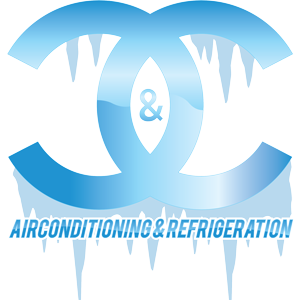
Heating Installation Regulations and Permits: What You Need to Know
Heating installation is a crucial aspect of creating a comfortable and safe living or working environment. In Sydney, like many other cities, the government has established specific regulations and permit requirements to ensure the proper installation of heating systems. This blog post will delve into the in-depth instructions provided by the government regarding heating installation regulations and permits in Sydney.
Are Heating Installation Regulations and Permits Required?
Heating installation is not a DIY project that you can undertake without considering the legal aspects. Before you consider any heating installation project, it is essential to familiarise yourself with the regulatory framework governing such activities in Sydney.
The primary reasons for regulations and permits in heating installation are safety and environmental protection. These measures are in place to ensure that your heating system is installed correctly, reducing the risk of accidents and minimising the impact on the environment.
One of the key regulatory bodies overseeing heating installations in Sydney is the New South Wales (NSW) Fair Trading. They play a crucial role in enforcing standards and codes related to building and construction, including heating installations. It is important to note that compliance with these regulations is not only a legal requirement but also a means of guaranteeing the longevity and performance of your heating system.
Types of Heating Systems
The regulations and permit requirements in Sydney cover a wide range of heating systems to address the diverse needs of residents and businesses. This includes but is not limited to:
Gas Heating Systems
If your heating system involves the use of gas, you must adhere to specific regulations outlined by relevant authorities. This typically involves compliance with Australian standards for gas appliances and ensuring the installation is performed by a licensed gas fitter.
Electric Heating Systems
Regulations for electric heating systems focus on safety standards, proper wiring and adherence to electrical codes. Ensuring that your electric heating system is installed by a licensed electrician is crucial for compliance.
Solid Fuel Heating Systems
Wood heaters and other solid fuel heating systems have their own set of regulations, primarily concerning emission standards and proper installation practices. Compliance with these regulations helps minimise environmental impact and ensures safety.
Permit Requirements
In addition to understanding the specific regulations related to each type of heating system, obtaining the necessary permits is a critical step in the installation process. The government requires permits for heating installations to regulate and monitor construction activities. Here are some key points to consider:
Development Applications (DAs)
In some cases, heating installations may require a Development Application (DA) to be submitted to the local council. DAs are necessary for major installations or alterations that may impact the structure of the building.
Complying Development Certificates (CDCs)
Certain heating installations may be eligible for a Complying Development Certificate, a faster approval process for straightforward projects that meet specific criteria. This option streamlines the approval process, making it more efficient for certain types of heating installations.
Licensed Professionals
Many jurisdictions require heating installations to be carried out by Sydney’s premier heating installation professionals. This includes licensed gas fitters for gas heating systems and licensed electricians for electric heating systems. Engaging with licensed professionals not only ensures compliance but also guarantees the quality of the installation.
Should You Hire Professionals for Compliance?
When navigating the complex world of heating installation regulations and permits, the question arises: Is it prudent to enlist the expertise of professionals? The answer is a resounding yes. Here’s why:
Expertise in Regulations
Heating installation professionals are well-versed in local and national regulations. Their in-depth knowledge ensures that your installation complies with all necessary standards and helps you avoid potential legal complications.
Permit Procurement
Obtaining permits can be a tedious process. Professionals streamline this by handling the paperwork, which ensures timely approvals and spares you the hassle of dealing with complex bureaucratic procedures.
Quality Assurance
Professional installers not only ensure compliance but also guarantee the quality of the installation. This is important for the safety and efficiency of your heating system, providing peace of mind for years to come.
Time and Cost Efficiency
While DIY attempts might seem cost-effective initially, professionals bring efficiency. They get the job done right the first time and save you from potential rework expenses and the valuable time spent on corrections.
Safety First
Heating systems involve intricate components. Professionals prioritise safety, minimising the risk of accidents or malfunctions. This is crucial for protecting your property and the well-being of its occupants.
CNC AIR: Top-Quality Heating and Cooling Services
When it comes to heating installation that complies with Sydney’s heating installation regulations and permits, CNC Air is your trusted partner. As Sydney’s premier heating installation professionals, we bring a wealth of experience and commitment to ensuring your heating system meets the highest standards of compliance. Our team is dedicated to delivering top-quality heating and cooling services tailored to the unique requirements of Sydney residents.
Choose CNC Air for a seamless heating installation experience that not only complies with Sydney’s regulations but also exceeds your expectations. Contact us today to transform your home into a comfortable haven with our top-quality heating and cooling services.

